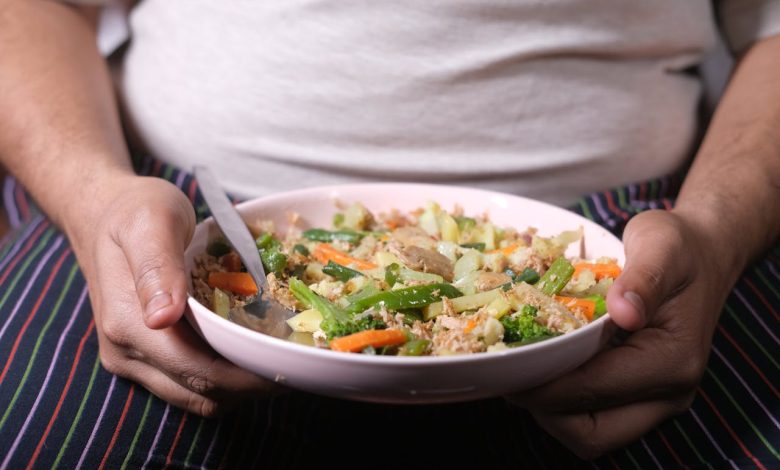How to Lose Weight on a Vegetarian Diet

Switching to a vegetarian diet is not only a great way to improve your overall health, but it can also support weight loss when done correctly. Contrary to some myths, vegetarian diets are not automatically low in calories or fat, and simply cutting out meat won’t necessarily lead to weight loss. To shed pounds effectively on a vegetarian diet, you need a well-planned, nutrient-dense approach.
In this blog post, we’ll explore how to lose weight on a vegetarian diet by focusing on balanced nutrition, mindful eating, and practical strategies for long-term success.
1. Understanding the Basics: How a Vegetarian Diet Can Support Weight Loss
A vegetarian diet is one that excludes meat, poultry, and fish, but it can still include a variety of plant-based foods like vegetables, fruits, legumes, grains, nuts, and seeds. Depending on your dietary choices, you may also include dairy and eggs (ovo-lacto vegetarian).
Here’s why a vegetarian diet can support weight loss:
- High in Fiber: Plant-based foods like vegetables, fruits, and whole grains are rich in fiber, which promotes satiety and helps control hunger.
- Lower in Calories: Many plant-based foods are lower in calories than animal-based foods, making it easier to create a calorie deficit needed for weight loss.
- Nutrient Density: Whole plant foods are packed with vitamins, minerals, and antioxidants, which can improve metabolism and support fat loss.
However, it’s essential to avoid common pitfalls like relying on processed vegetarian foods, which can be high in sugar, fat, and calories.
2. Focus on Whole, Nutrient-Dense Foods
To lose weight on a vegetarian diet, focus on consuming whole, unprocessed foods that are naturally low in calories and high in nutrients. These foods will help keep you feeling full and satisfied while still promoting weight loss.
Key Foods for Weight Loss:
- Vegetables: Non-starchy vegetables like leafy greens, broccoli, cauliflower, peppers, and zucchini are low in calories but high in volume and nutrients. They can help fill you up without adding extra calories.
- Fruits: While fruits contain natural sugars, they are also rich in fiber and vitamins. Stick to whole fruits like berries, apples, and oranges rather than fruit juices, which can be calorie-dense.
- Whole Grains: Choose whole grains like quinoa, brown rice, oats, and barley over refined grains. These whole grains provide fiber and slow-digesting carbohydrates, which help maintain steady energy levels.
- Legumes: Lentils, chickpeas, black beans, and other legumes are excellent sources of protein and fiber, keeping you fuller for longer.
- Nuts and Seeds: While higher in fat, nuts and seeds provide healthy fats that are essential for satiety and nutrition. Eat them in moderation, as they are calorie-dense.
- Plant-Based Proteins: Tofu, tempeh, and edamame are great sources of protein that can help build lean muscle mass, which supports weight loss by boosting your metabolism.
Foods to Avoid or Limit:
- Processed Vegetarian Foods: Meat substitutes, vegetarian junk food, and pre-packaged snacks can be high in calories, unhealthy fats, and sodium.
- Sugary Foods and Drinks: Even vegetarian diets can be loaded with sugar from sweetened drinks, baked goods, and desserts, which can hinder weight loss.
- Refined Grains: White bread, white rice, and pastries made with refined flour lack fiber and can lead to spikes in blood sugar, making it harder to control hunger.
3. Balance Your Macros: Protein, Carbohydrates, and Healthy Fats
Achieving a balance between the three macronutrients—protein, carbohydrates, and fats—is crucial for sustainable weight loss. A vegetarian diet can be rich in carbohydrates, but it’s essential to choose the right types of carbs and balance them with protein and fat.
Protein: Protein helps maintain lean muscle mass, which is important for boosting metabolism. On a vegetarian diet, you can get protein from:
- Tofu, tempeh, and seitan
- Legumes (lentils, chickpeas, black beans)
- Quinoa and other whole grains
- Nuts, seeds, and nut butters
- Eggs (if you include them in your diet)
- Plant-based protein powders (optional)
Carbohydrates: Focus on complex carbohydrates that provide long-lasting energy:
- Whole grains (brown rice, quinoa, oats)
- Vegetables (especially non-starchy ones)
- Legumes
- Fruits (in moderation)
Healthy Fats: Fats are essential for hormone regulation and satiety, but choose healthy, plant-based fats such as:
- Avocados
- Olive oil
- Coconut oil (in moderation)
- Nuts and seeds
- Flaxseeds and chia seeds (rich in omega-3 fatty acids)
By including all three macronutrients in your meals, you can feel full and satisfied, which makes it easier to stick to your calorie goals without feeling deprived.
4. Watch Your Portions and Practice Mindful Eating
Even on a healthy vegetarian diet, it’s possible to overeat and consume more calories than your body needs. Pay attention to portion sizes, especially when it comes to calorie-dense foods like nuts, seeds, and oils.
Portion Control Tips:
- Use smaller plates to help control portion sizes visually.
- Measure your servings of calorie-dense foods like nuts, seeds, and oils to avoid overconsumption.
- Pay attention to hunger cues and stop eating when you feel satisfied, not stuffed.
Mindful Eating: Mindful eating is an effective tool for weight loss. It involves paying full attention to your food and eating experience, which can help prevent overeating. Practice mindful eating by:
- Eating slowly and chewing your food thoroughly.
- Avoiding distractions (like TV or phones) during meals.
- Focusing on the flavors, textures, and smells of your food.
- Eating only when you’re hungry and stopping when you’re satisfied.
5. Incorporate Regular Exercise
While diet plays a significant role in weight loss, regular physical activity can enhance your results and improve overall health. A combination of cardio and strength training is ideal for fat loss and muscle retention.
Exercise Tips for Weight Loss:
- Cardio: Aim for at least 150 minutes of moderate-intensity cardio exercise per week. This could include brisk walking, cycling, swimming, or jogging.
- Strength Training: Incorporate strength training exercises 2-3 times per week to build lean muscle mass, which helps burn more calories at rest.
- Flexibility and Mobility: Activities like yoga or stretching can improve flexibility and reduce stress, making it easier to stay active and maintain your exercise routine.
Exercise not only helps with weight loss but also boosts mood, improves sleep, and supports cardiovascular health.
6. Stay Consistent and Be Patient
Weight loss is a gradual process, and it’s important to set realistic goals and stay patient. Consistency is key—making small, sustainable changes to your diet and lifestyle will lead to long-term success. Don’t focus on quick fixes or extreme calorie restrictions, as these approaches are often unsustainable and can lead to weight regain.
Instead, aim for slow and steady weight loss (about 1-2 pounds per week), which is more likely to be maintained over time.
Conclusion
Losing weight on a vegetarian diet is entirely achievable with the right strategies in place. By focusing on whole, nutrient-dense foods, balancing your macronutrients, practicing mindful eating, and incorporating regular exercise, you can reach your weight loss goals while still enjoying a diverse and satisfying diet.
Remember, every individual’s body responds differently to dietary changes, so listen to your body, consult with a healthcare professional if needed, and stay patient on your weight loss journey. With dedication and consistency, you can achieve a healthy, balanced lifestyle that supports both your weight loss and overall well-being.


